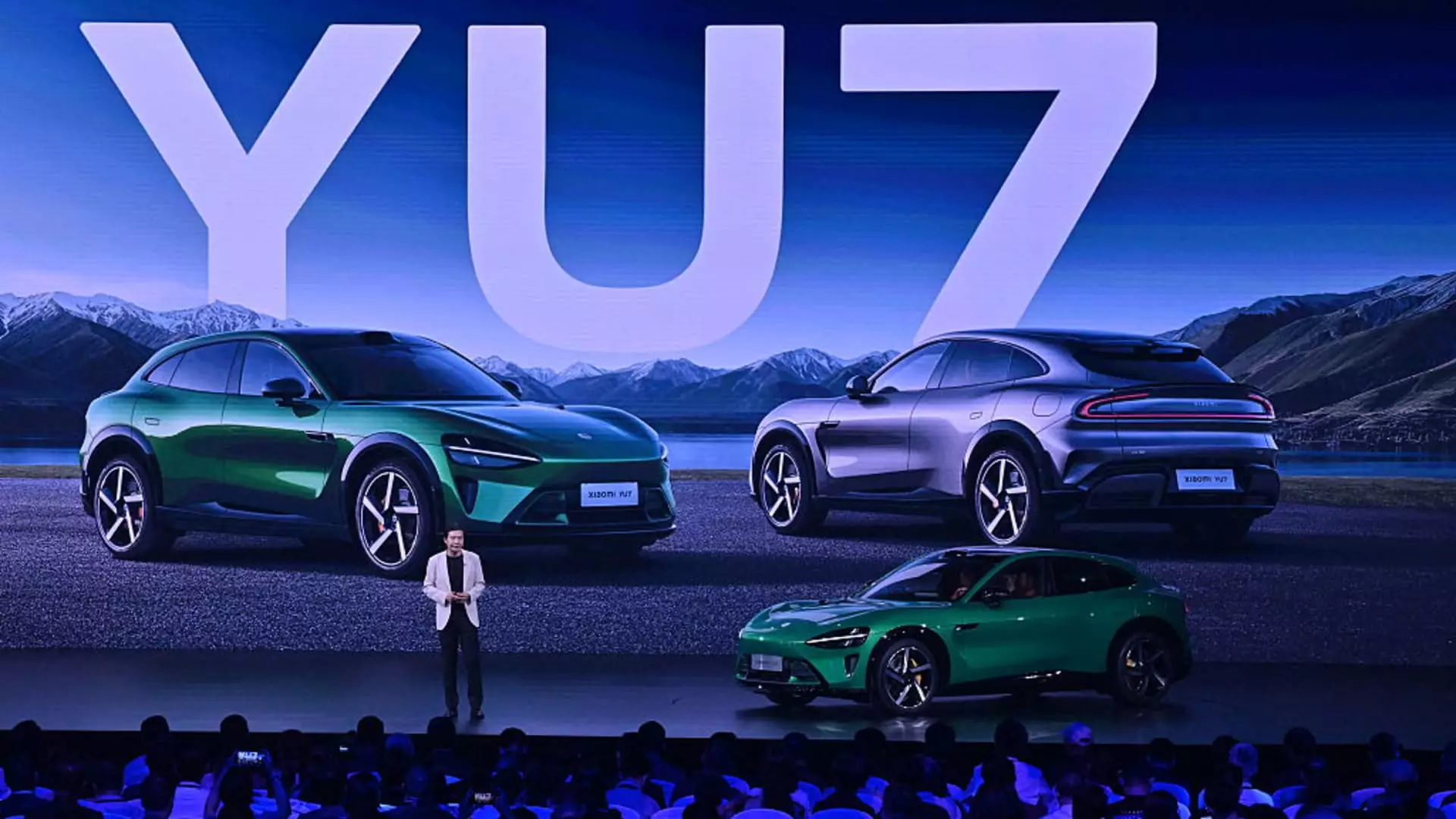The electric vehicle (EV) market in China is witnessing a fierce competition, with various players vying for a share of an increasingly lucrative sector. While established giants like Tesla have dominated the landscape, new entrants continue to emerge with aggressive strategies aiming to woo consumers. Among these, Xiaomi, known primarily for its smartphones, has recently ventured into electric vehicles. As the market garners immense attention for its vast growth potential, Xiaomi’s recent move represents a strategic shift, amplifying its ambitions beyond consumer electronics to a burgeoning automotive segment.
Xiaomi’s Ambitious Entry into the EV Scene
On the heels of its inaugural electric vehicle, the SU7 sedan, Xiaomi is stepping up its game with the introduction of the YU7 SUV. This new model claims a remarkable driving range of 760 kilometers on a single charge, outpacing Tesla’s Model Y, which currently boasts a range of 719 kilometers. Driving range is not just a technical specification; it serves as a crucial selling point in a market where consumers are increasingly concerned about the practicality of battery life. As long as the infrastructure for widespread charging remains underdeveloped, range anxiety continues to loom over potential buyers. In this context, Xiaomi’s YU7 positions itself as an attractive alternative that could disrupt Tesla’s hold on the Chinese market.
Market Predictions and Targeted Pricing
According to analyst predictions from Citi, Xiaomi’s pricing strategy for the YU7—estimated between 250,000 yuan to 320,000 yuan ($34,700 to $44,420)—places it directly in competition with Tesla’s Model Y, which starts at approximately 263,500 yuan. The anticipated monthly sales of 30,000 units translating to an annual figure reaching up to 360,000 units is indicative of both confidence in the product and a broader strategy to capture market share amidst rising competition. Such figures illustrate that Xiaomi is banking on its brand reputation and strategic pricing to entice potential buyers who may be reluctant to invest beyond their budget for EV options.
Market Landscape and Competitive Forces
The dynamics of the EV marketplace are complex and competitive. For context, recent data illustrates Tesla’s Model Y as a top contender, with strong consumer interest reflected in its sales figures. However, Xiaomi is not without its challenges and is necessarily competing with several rising stars, including BYD and others, which offer compelling alternatives at various price points. The BYD Seagull, for instance, has already set the stage by presenting an economical option for budget-conscious consumers. The evolving competitive environment suggests that while Xiaomi’s YU7 may have attractive features and a competitive price, actual market performance will depend heavily on consumer preferences shaped by a blend of technological advancements and cost considerations.
Positioning and Future Prospects
Positioned as a “luxury SUV,” the YU7 signals Xiaomi’s aspirations to step into a category that combines performance and premium appeal. Analyst insights, including those from CLSA’s Elinor Leung, suggest that the YU7 has the potential to outperform previous models like the SU7, reinforcing Xiaomi’s determination to assert its presence in the automotive space. The question remains how effectively Xiaomi can translate its tech-driven innovations—typical of its smartphone sector—into the automotive arena, where safety, reliability, and performance hold paramount importance.
On that note, the realities of EV safety cannot be overlooked. Xiaomi recently faced scrutiny following a tragic incident involving its SU7, prompting the Chinese government to require stricter advertising language surrounding driver-assist technologies. This reflects the balancing act companies must perform in asserting their technological prowess while ensuring consumer safety—a critical factor that will influence buyer confidence and future sales.
As Xiaomi charts its course in the electric vehicle domain, the interplay of technology, pricing, and consumer sentiment will be paramount in determining its success. The company’s advocacy for high-performance capabilities and commitment to broadening its product offerings places it at a unique juncture. The forthcoming launch of the YU7 SUV not only marks a significant milestone for Xiaomi but also heralds the broader evolution of the EV market in China, filled with challenges yet abundant with opportunities. As the competition intensifies, it is clear that the battle for dominance in this high-stakes arena is just beginning.

